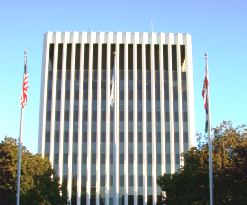
BY DAVE PRICE
Daily Post Editor
Palo Alto Mayor Liz Kniss, upon hearing the story of local professor Christine Blasey Ford’s alleged sexual assault by Supreme Court nominee Brett Kavanaugh, has decided to tell her own story of being attacked by men in the 1960s.
In one instance, it was a childhood friend who offered to drive her home from a party in the mid-1960s. A few years later, it was a pilot who assaulted her in a hotel room when she was a flight attendant.
Kniss told the Daily Post today (Sept. 23) that she didn’t come forward at the time and report the men to police — or even tell her friends and family — because she was embarrassed.
“I can’t tell you how embarrassed you feel that you even let yourself get into that situation,” Kniss said.
“The hardest part is that most women feel that it is their fault, that they did something wrong,” Kniss said. “As a woman, you are frequently blamed.”
And she understands why Ford can’t recall many of the details of the incident with Kavanaugh in the early 1980s.
“It’s like a bad car accident where you remember certain things but you don’t remember others,” Kniss said.
“I’ve been in the same situation twice and I couldn’t remember every detail. I couldn’t remember everything a week later. You’re in a state of shock,” the Palo Alto mayor and council member said.
Here’s what she can remember about the two attacks.
In the first case, the man was somebody she knew since elementary school who lived in her hometown, Cotuit, Mass., a town then of about 1,000 people. It’s located on Cape Cod. She was a nursing student who had returned home for summer vacation.
After a party, he offered her a ride home, she said. He stopped in a deserted area in the woods and began pulling at her clothes, Kniss said. “He was clearly trying to molest me.”
Amid the struggle, she threatened to tell others what he was doing to her, she said. “My parents know your parents … I guess he finally got scared and stopped.”
The only person she told about the episode was her sister, who called her a few years ago when the man’s obituary ran in the local paper in Massachusetts.
A couple of years later, when she was in her early 20s, Kniss took a break from her nursing career and became a flight attendant so she could travel to Europe.
“After you get done with a flight, usually everybody ends up in a room having a drink, ordering dinner or whatever,” Kniss recounted. “I think I was in my room but it could have been his room. Suddenly, the room was empty. It was just me and this pilot who were left in this room. It got physical very quickly. I told him that you’ve got to stop because we’re flying out together the next morning.”
“I managed to squirm out of it and get out the door and went down to the lobby,” Kniss said. “I talked my way out of that situation.”
Kniss understands why Ford didn’t come forward sooner, because women who are sexually assaulted often feel as if they are to blame.
“They feel that it is their fault, that they did something wrong. Should I have not taken a ride? Should I have been more careful when I saw people leave the hotel room?”
Kniss decided to come forward on Thursday after she had been interviewed by TV news crews outside of Ford’s south Palo Alto home, where the professor’s supporters had just held a rally.
She said a reporter said she had heard something in Kniss’ voice that caused her to ask if she too had been sexually assaulted. “No one had asked me directly. That’s when you take a deep breath” and now she has come forward with her story.
Kniss said she’s glad Ford is coming forward with her story about Kavanaugh. She said she doesn’t know Ford, though Kniss once served on the Palo Alto University advisory board. “I may have met her. I don’t remember,” she said.
Kniss, 79, is in the twilight of her political career after serving in many local offices including the county Board of Supervisors and the Palo Alto school board. She points out that she has nothing to gain by sharing her stories now.
But she is concerned about the future of women’s reproductive rights if Kavanaugh joins the high court. She recalled working as a nurse before the court’s landmark 1973 decision Roe v. Wade that legalized abortion. She said she doesn’t want the nation to return to the days of “clothes hangers and cheap abortion clinics,” as she put it.



